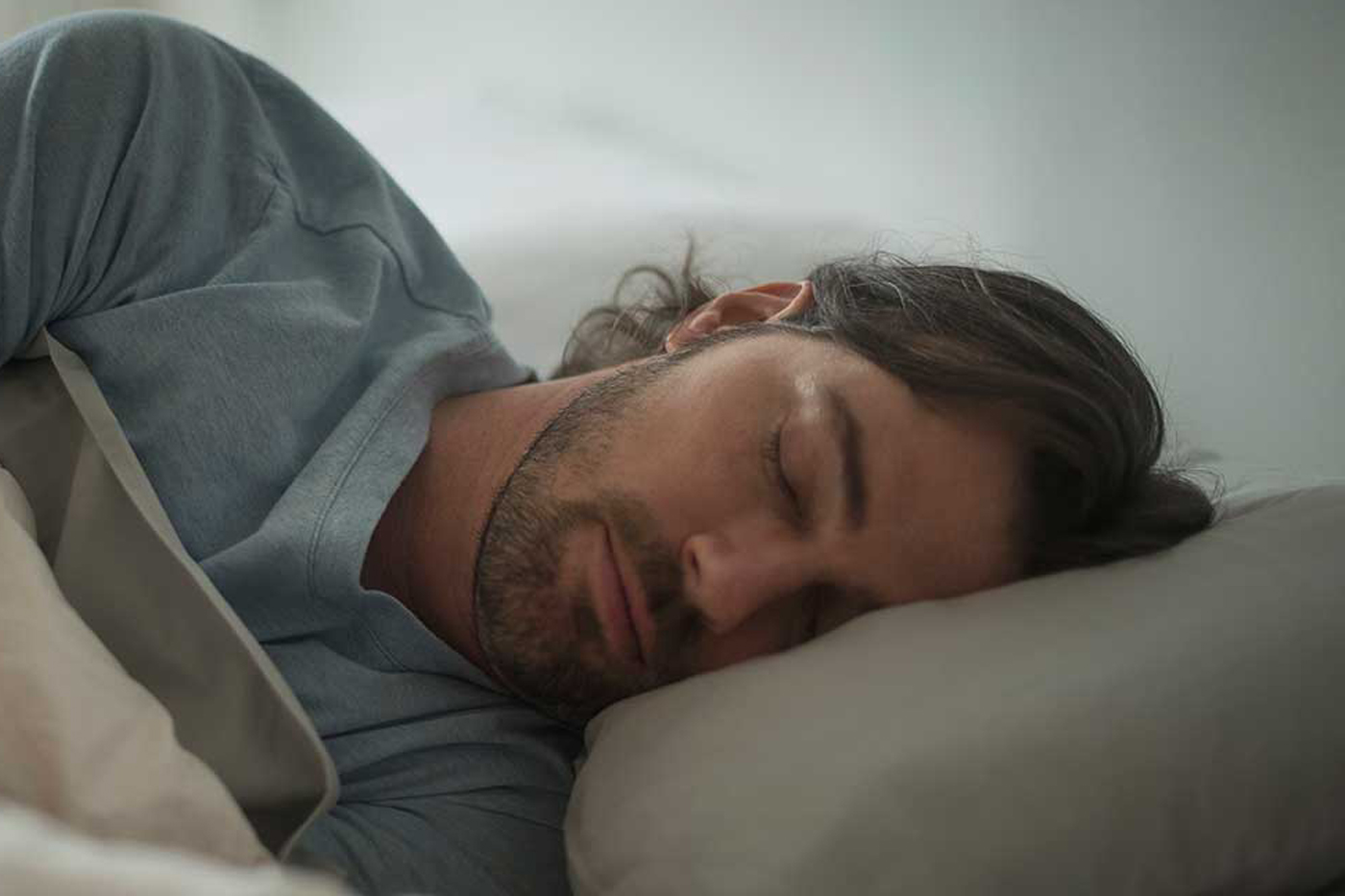Daytime activities to help you sleep better at night
Produced by:


Did you know that your activities during the day can affect how well you will sleep at night? According to the 2022 Sleep in America Poll, most Americans have unconscious habits and routines—irregular meals times, lack of exercise and exposure to light that affect their overall sleep quality1. It is critical to get a certain amount of quality sleep every night (amount varies based on age) to maintain good health.
Calculate your recommended bedtime ›
At Optum Medical Care, we want to help encourage better sleep quality, here are some things you can do at home to get more restful sleep.
Brighten your day, not your night
The natural cycle of mental, physical and behavioral changes your body goes through within a 24-hour period, or circadian rhythm, is greatly affected by how much light you receive throughout the day and when. Bright light first thing in the morning may help you wake up and feel more alert during the day, while helping your body to fall asleep earlier2.
Your circadian rhythm is most sensitive to light two hours before your usual bedtime, throughout the night while you are sleeping and one hour after you wake up2. Taking some reasonable time outdoors can provide considerable amount of light needed to help provide better sleep quality. The Sleep Foundation’s Sleep Health Index (SHI) measured at 79 for people who spent three to five hours outside and fell to 72 for those who spent more than five hours outside1.
Closer to your bedtime, you need to lessen you. access to light, which includes blue light, a source of light that comes from fluorescent lights, LED lights and back-lit electronics. Blue light suppresses your melatonin, a hormone your body produces in response to darkness, which affects your sleep cycle, making it difficult for you to fall asleep or wake up too early2.
Make your mealtime consistent
The food you eat plays an important role in maintaining your overall physical health, but did you know that when you eat can affect how well or how poorly you sleep? Your metabolism is a part of your sleep cycle, signaling to your body when it’s time to be active and when it’s time to wind down.
Start your day with a healthy breakfast to kick start your metabolism and keep you feeling alert throughout the day. Eating a light dinner two to three hours before bedtime will ease your body into sleep1. Do not eat a heavy meal or give into late night snacking right before bed as it can disrupt your sleep.
Get up, get active
Getting and staying active has long-term health benefits including better sleep. More than one out of three people get less than the CDC recommendations on physical activity as most Americans live mainly sedentary lifestyles3. It’s important to incorporate some physical activity into your daily routine for not only your physical health, but better and deeper sleep. Even it’s just a short 10-minute walk, get up, get active.
Medical care and help
If you believe you are suffering from a chronic sleep issue, consult your primary care doctor who can help you find more resources or refer you to a sleep medicine specialist for further evaluation.
Disclaimer:
The information featured in this site is general in nature. The site provides health information designed to complement your personal health management. It does not provide medical advice or health services and is not meant to replace professional advice or imply coverage of specific clinical services or products. The inclusion of links to other web sites does not imply any endorsement of the material on such websites.
- National Sleep Foundation. 2022 National Sleep Foundation’s Sleep in America® Poll, The National Sleep Foundation. https://www.thensf.org/wp-content/uploads/2022/03/NSF-2022-Sleep-in-America-Poll-Report.pdf. Accessed February 22, 2023.
- Centers for Disease Control and Prevention. NIOSH Training for Nurses on Shift Work and Long Work Hours. https://www.cdc.gov/niosh/work-hour-training-for-nurses/longhours/mod2/20.html. Accessed February 22, 2023.
- National Sleep Foundation. Sleep Awareness Week. https://www.thensf.org/sleep-awareness-week. Accessed February 22, 2023.
Atrial fibrillation symptoms: when to see a provider
Atrial fibrillation doesn’t always feel the same for everyone. Learn common symptoms, why they matter, and when to talk to a provider.
Read articleHeart-healthy diet guide: Mediterranean, DASH, and plant-based approaches for cardiovascular wellness
Learn about ways of eating that can support a healthy heart. Plus, tips for sticking to a heart-healthy eating pattern.
Read articleHealthy habits that can help maintain a good blood pressure
Your blood pressure can tell you a lot about your overall health. Here are ways to keep it in a healthy range. Plus, how to check your blood pressure at home.
Read articleMammograms: What you need to know
In honor of Breast Cancer Awareness Month, we spoke with Dr. Shani Fruchter, a board-certified breast surgeon at Optum Medical Care, to break down everything you need to know about mammograms. From when to start screening to what the procedure feels like, this guide helps demystify one of the most important tools in breast cancer detection.
Read article